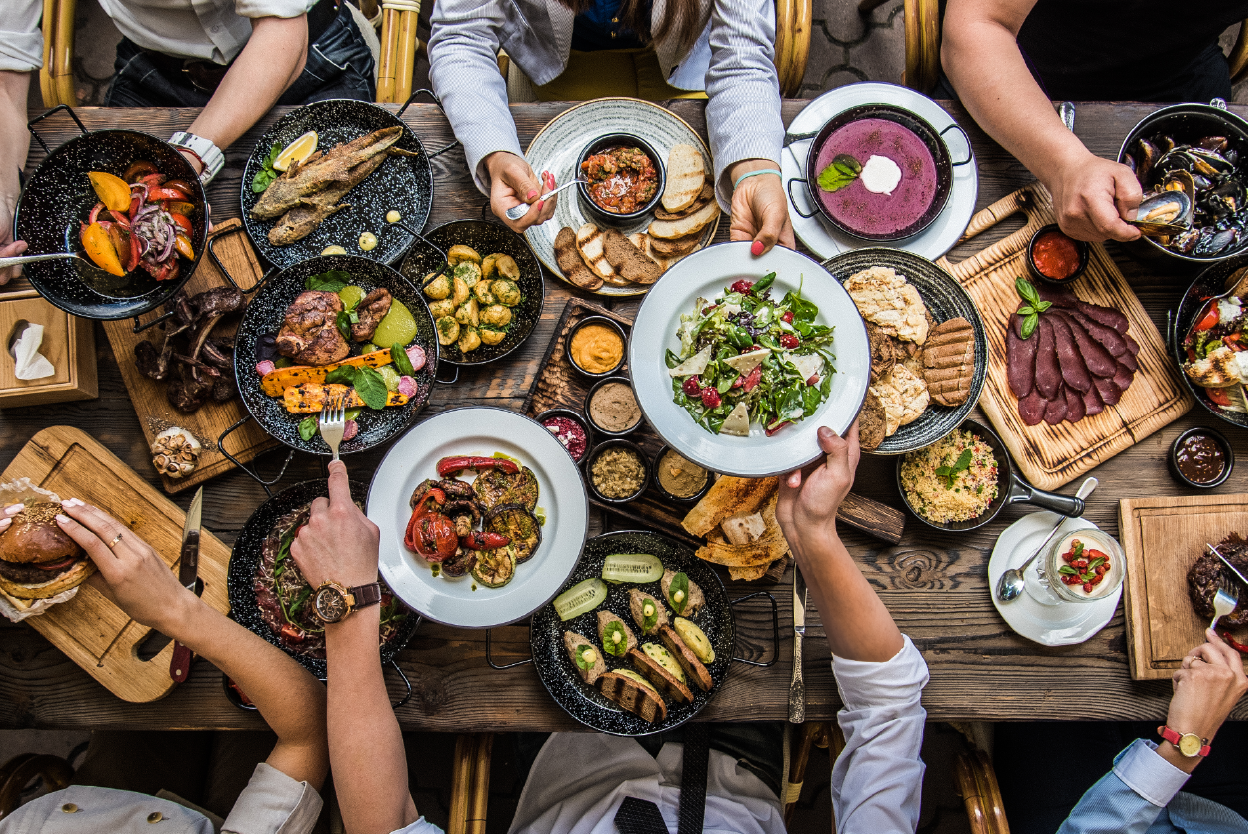Ramadan is a time for spiritual reflection, improvement, and increased devotion and worship. Muslims are expected to put more effort into following the teachings of Islam, which includes fasting from sunrise to sunset. However, changing eating patterns and abstaining from food and drink during daylight hours can pose challenges to maintaining proper nutrition.
Also, it is important to approach fasting with a strategy that supports physical well-being while fulfilling religious obligations.
Nutrition during Ramadan should focus on foods that sustain energy levels and prevent dehydration. Complex carbohydrates provide a slow-releasing energy source throughout the day, while high-fiber foods can help maintain digestive health. Similarly, by incorporating proteins and healthy fats into the pre-dawn meal, suhoor can help individuals feel fuller for longer periods.
For Iftar, the meal to break the fast, replenishing energy stores is key and should include a balanced mix of nutrients.
To support health, one should consider mindful eating practices during non-fasting hours. Drinking plenty of water between iftar and suhoor is crucial to avoid dehydration throughout the day.
Making informed food choices and a conscious effort to balance daily meals can enhance the fasting experience, making it a time for spiritual and physical nourishment.
Understanding Ramadan and Fasting
Ramadan, a holy month of spiritual reflection, requires Muslims to fast from dawn to sunset. It is crucial to grasp the purpose behind this practice and the guiding principles to maintain one’s health and spiritual focus.
The Significance of Ramadan
Ramadan is the ninth month of the Islamic lunar calendar and is observed by Muslims worldwide as a month of fasting, prayer, reflection, and community. It is considered the holiest month as it commemorates the first revelation of the Quran to Prophet Muhammad.
Notably, fasting during Ramadan is one of the Five Pillars of Islam, essential acts of worship that form the foundation of a Muslim’s faith and practices.
Principles of Fasting
Fasting (sawm) during Ramadan entails abstention from food, drink, smoking, and marital relations from dawn (Fajr) to sunset (Maghrib). The fast traditionally begins with a pre-dawn meal ‘Suhoor’ and is broken with a meal known as ‘iftar,’ often starting with the consumption of dates and water. Fasting teaches discipline, self-control, and empathy for the less fortunate. It is also a time for Muslims to detoxify both spiritually and physically, cleansing the body and soul.
Fundamentals of Nutritious Eating
Maintaining a balance of key nutrients is crucial during Ramadan for sustaining energy levels and overall health while fasting.
Macronutrients Balance
Macronutrients are the cornerstones of a nutritious diet, comprising carbohydrates, proteins, and fats. This is essential during Ramadan to maintain energy and muscle mass.
Furthermore, for suhoor (pre-dawn meal), one might consider complex carbohydrates for sustained energy release, coupled with proteins for muscle maintenance, and healthy fats for satiety. An example could be whole-grain bread with eggs and avocados.
Hydration Strategies
Hydration is a challenge during Ramadan due to the restrictions on drinking during daylight hours. It is important to focus on hydrating during non-fasting hours.
During Ramadan, Muslims should consume water-rich foods like cucumbers and watermelons at suhoor and iftar (the meal to break the fast) and drink plenty of water. Starting and ending the day with several glasses of water can help prevent dehydration.
Vitamins and Minerals
Vitamins and minerals support many bodily functions, including the immune system and energy production, making them vital during fasting periods. Foods rich in iron, like spinach, vitamin C, such as oranges, and calcium found in dairy products, are beneficial for maintaining health during Ramadan. A diet that contains a variety of fruits, vegetables, lean meats, and dairy can help provide the necessary vitamins and minerals.
Meal Planning for Ramadan
Effective meal planning during Ramadan can ensure sustained energy levels and proper nutrition. Fasting requires a strategic approach to the pre-dawn suhoor and the post-sunset iftar meals.
Pre-Dawn Suhoor Meals
Suhoor is the meal consumed early in the morning before fasting starts at dawn. It should be nourishing to help one maintain energy throughout the day. A balanced suhoor meal typically includes:
- Complex Carbohydrates: For slow-releasing energy, such as whole-grain bread, oatmeal, or quinoa.
- Protein: Eggs, cottage cheese, or Greek yoghurt to promote satiety and muscle health.
- Healthy Fats: From foods like avocados or nuts, which can help keep you full.
- Fiber: Found in fruits, vegetables, and legumes for digestive health.
It’s also important to hydrate well during suhoor with water or milk.
Breaking the Fast with Iftar
Iftar begins after sunset and is the meal to break the day’s fast. A well-composed iftar provides essential nutrients without causing discomfort. Key components include:
- Hydration: Drinking water or hydrating foods like watermelon to replenish fluids.
- Gentle Start: Dates or soup to prepare the digestive system for more substantial foods.
- Balanced Plate: Including a mix of vegetables, proteins, and carbohydrates for recovery and sustenance.
- Moderation: Eating slowly and not overindulging helps maintain a healthy digestive process.
Iftar meals can also include dishes like grilled meats, salads, and stews for a wholesome end to the day’s fast.
Healthy Eating Habits
Maintaining healthy eating habits during Ramadan is crucial for sustaining energy levels and ensuring adequate nutrition. Proper portion control, mindful eating, and appropriate meal timing can significantly optimize the benefits of fasting.
Portion Control
Portion control is essential to avoid overeating during iftar and suhoor. Individuals should:
- Start with a small portion.
- Use smaller plates to avoid large servings.
- Include a variety of foods to provide a balance of carbohydrates, proteins, and fats.
Mindful Eating
Mindful eating involves being fully attentive to the experience of eating and enjoying each bite. This includes:
- Eating slowly and without distraction.
- Being aware of the body’s hunger and fullness cues.
- Focusing on the flavor and texture of foods.
Appropriate Meal Timing
Appropriate meal timing helps maintain energy levels throughout the day. Key practices include:
- Consuming a balanced pre-dawn meal (Suhoor) that is rich in complex carbohydrates, protein, healthy fat, and enough fiber.
- Breaking the fast with a light meal (Iftar) and including a variety of nutrient-dense foods.
- Avoiding large meals right before bed to ensure better sleep quality.
Adjustments for Special Dietary Needs
When observing Ramadan, individuals with special dietary needs must take extra care to maintain their health. These adjustments require thoughtful planning and consideration of one’s unique nutritional requirements.
Managing Chronic Conditions
Individuals with chronic conditions such as diabetes or hypertension should consult their doctors or healthcare providers to tailor a fasting plan that ensures stability and well-being. For example, they may need to monitor blood glucose levels more frequently and adjust medication timings. A study published in the Journal of the American Heart Association highlights the potential benefits of intermittent fasting on insulin levels and human growth hormone, but emphasizes the importance of seeking medical advice.
Vegetarian and Vegan Options
Those who follow a vegetarian or vegan diet can maintain a balanced diet during Ramadan by incorporating a variety of plant-based proteins. Meals should include:
- Legumes: such as lentils and chickpeas
- Nuts and seeds: which offer healthy fats, like those found in 1-2 thumbs of healthy fats
- Whole grains: for sustained energy
- Leafy greens and vegetables: to provide essential vitamins and minerals
Pregnancy and Breastfeeding Considerations
Pregnant and breastfeeding women may need to modify their fasting practices to support their own health and the health of their babies. It’s crucial to focus on nutrient-dense foods and maintain hydration. Specific guidance may include:
- Increased caloric intake: to support fetal growth and milk production
- A variety of foods: including whole grains, lean protein, and healthy fat, to provide all the nutrients needed
Regular hydration: outside fasting hours to compensate for the lack of fluid intake during the day





